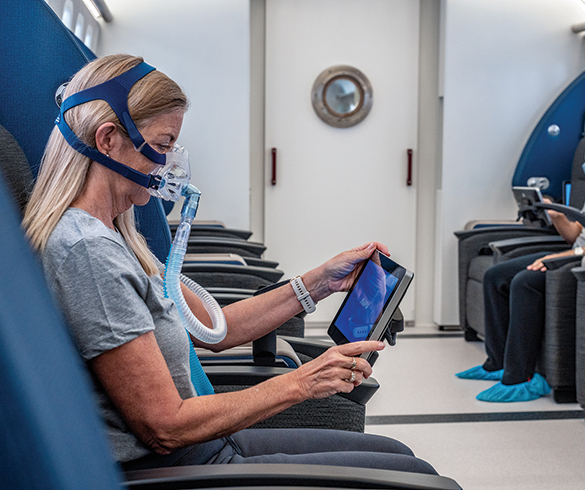
6 Ways to Keep Your Mind Sharp as You Age
As knowledge about the aging process, medical research and technology continues to advance, so do the options for managing how aging impacts your life. While biologically everyone ages differently, you can control some things by committing to healthy lifestyle choices that can keep your mind sharp for years to come.
- Stay in motion.
A study published in “Neurology” found formerly sedentary people who started walking three times a week improved executive function – the myriad processes required for people to plan, focus attention, remember instructions and juggle multiple tasks – and lowered predicted brain age by nine years in just six months. In fact, exercises such as hiking can have an increased impact on brain health.
- Enhance brain performance.
Emerging medical advancements show it may be possible to influence the aging process. The medical journal “Aging” published a world-first study in which researchers significantly enhanced cognitive performance of older adults with a Hyperbaric Oxygen Therapy (HBOT) program. Some of the main areas of improvement were those that typically declined with age, including memory, attention, information processing speed, stamina and energy.This medical breakthrough is garnering global attention, but the first and only treatment option available outside of Tel Aviv, Israel, is at the state-of-the-art Aviv Clinics in The Villages, Florida.
- Improve your diet.
Diet is often seen as a pathway to weight loss, but as you get older, it’s important to understand the ways your diet holds the keys to your health and physiology, and impacts brain function and the ability to concentrate. For example, fatty fish like salmon is rich in omega-3 acids, which are linked to lower risk of dementia, stroke and slower mental decline, according to the National Institutes of Health. Berries, apples and tea can help lower dementia risk, as found in a study published in the “American Journal of Clinical Nutrition.”
- Develop good sleep habits.
A healthy amount of sleep can go a long way toward maintaining good cognitive health. Most adults need at least seven hours of sleep each night to adequately rest their brains. Steps you can take to develop good sleep habits include going to bed and getting up around the same time each day and avoiding caffeine or food too close to bedtime.
- Reduce and manage stress.
Few things cause aging as intensely or negatively as stress. It can lead to a variety of cognitive issues and manifest itself in your physical appearance and chronic conditions such as heart disease, depression and other psychological disorders. To help reduce and manage stress, consider practicing yoga or meditation, spending time in nature, decluttering your home and getting adequate sleep.
- Feed your brain.
Like any muscle in the body, the brain needs stimulation and regular exercise to avoid atrophy and decline. Brain games and activities such as listening to music, reading or arts and crafts can help maintain brain fitness. Blogging can also help engage your inner storyteller and use the brain to do something that involves both passive and active thinking outside of its usual routine.There’s plenty of “brain food” available to devour. By reading and experiencing new things, as well as keeping your mind active with puzzles and games, you can slow age-related cognitive decline.
Learn more about enhancing your cognitive and physical performance, and feeling your best at any age, at Aviv-Clinics.com.
Source:
Aviv Clinics